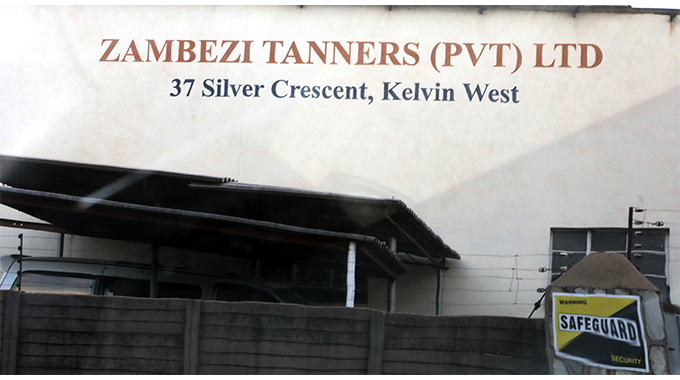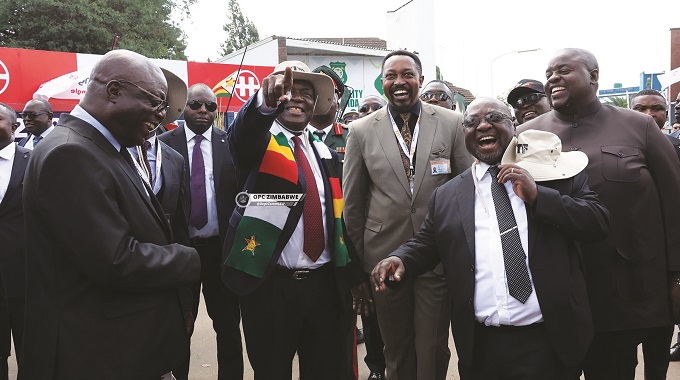President maintains open door for families of late National Heroes

Nqobile Tshili
THE family of the late national hero and former Zimbabwe People’s Revolutionary Army (Zipra) commander Rodgers Alfred “Nikita” Mangena has commended President Mnangagwa’s open door policy and his willingness to listen to challenges faced by families of former freedom fighters.
President Mnangagwa on Wednesday met Mrs Sikhubekiso Madeya Mangena and her son, Lotshe, at State House.
The President had also previously met the Mangena family before this week’s meeting.
The meeting was part of the broader engagement that President Mnangagwa has been having with widows of former freedom fighters in trying to appreciate their challenges and how they can be addressed.
In an interview yesterday, the late General Mangena’s son, Mr Lotshe Mangena, commended the President for his open door policy.
“The President has an open door policy. So, we see him every now and again. We call his office if we have any problems or anything that we think he might be able to solve for us. So, when we visited, we were paying a courtesy call on him,” said Mr Mangena in a brief interview.

President accompanied by Nikita’s wife cuts the ribbon
Presidential spokesperson and deputy chief secretary in the Office of the President and Cabinet, Mr George Charamba said President Mnangagwa’s meeting with the Mangena family speaks to his pledge to engage with surviving members of families of late freedom fighters.
“His Excellency, the President, met Mai Mangena and her son, Lotshe, and this was not the first meeting, if I’m not mistaken, he has met them more than three or four times. The meeting was in the context of touching base he is doing with the widows of liberation war heroes. The President is very much worried about the welfare of widows, and this is why he has been meeting and keeping in touch with them,” said Mr Charamba.
“But also, he is focusing on the command element of the two liberation movements — Zipra and Zanla. This is why in Mount Darwin during the Independence Day celebrations, the Government, on the President’s instruction, invited surviving members of the high command in both Zipra and Zanla to the event.”
He said the move is not going to end with the Mangena family as the Second Republic shows gratitude to families of the revered freedom fighters.
“And this will be the practice in future State occasions, surviving members of the High Command and General Staff will now be invited. This is a gesture of gratitude for their service. In that context, the President recently met Mrs Mangena and Lotshe. Rodgers Alfred Nikita Mangena was a foremost commander and patriot, which is why his family remains a priority to His Excellency,” said Mr Charamba.
The late General Mangena is a revered freedom fighter and commander, whose life was cut short when his Land Rover hit a Rhodesian land mine in Zambia in 1978.
He was 33 at the time of his death.
His remains were reburied at the National Heroes Acre on August 11, 1998.
To his honour, the Second Republic, named the cantonment which houses the Zimbabwe National Defence University and other institutions the Rodgers Alfred Nikita Mangena Barracks.
He is celebrated for his military acumen and tactical shrewdness in both guerilla and conventional war.
The late commander was born in 1943 in Mberengwa, Midlands Province, and attended Mhamande Primary School and studied at Chegato High Mission before relocating to Zambia where he continued with his education at Chikola High School.
He was awarded the Rhodes Scholarship which he did not take up because he opted to join the liberation struggle.
He was among the first group of freedom fighters to receive military training.

Lotshe Mangena
Cde Mangena was trained in Algeria in 1963 where he was selected for further training as an officer cadet. He came out as the best student while training together with combatants from the Mozambique Liberation Front (Frelimo), People’s Movement for the Liberation of Angola (MPLA), African National Congress (ANC) and African Party for the Independence of Guinea and Cape Verde (PAIGC) liberation movements.
The late national hero used the name Nikita after Nikita Sergeyevich Khrushchev who was the Premier of the Union of Soviet Socialist Republics (USSR) at the height of the Cold War between 1958 and 1964, in recognition of his military prowess.
When Zapu’s military wing was reconstituted and renamed Zimbabwe People’s Revolutionary Army (Zipra) in 1971 following the departure of the Chikerema-Nyandoro group, Cde Mangena was appointed Commander of Zipra with Jason Ziyaphapha Moyo as acting Commander-in-Chief.
He represented Zipra in high military joint commands at Mbeya Joint Command in Tanzania in 1972 as the Chief of Staff and in the Zimbabwe People’s Army in Mozambique (1975) as the Political Commissar.–@nqotshili










Comments